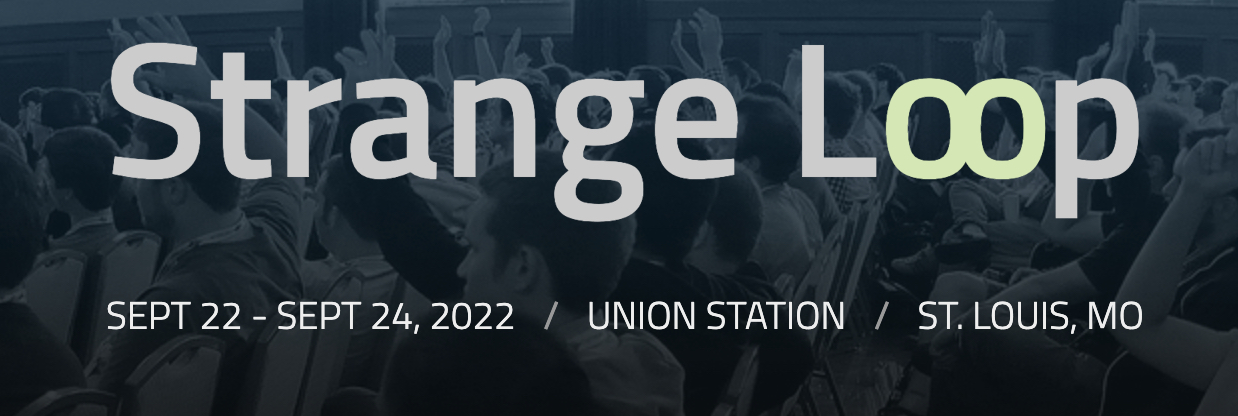Strange Loop

Strange Loop Strange is, according to its own website, a multi-disciplinary conference that brings together the developers and thinkers building tomorrow’s technology in fields such as emerging languages, alternative databases, concurrency, distributed systems, security, and the web. I’ve had it on my list of things to do one of these years for a while. I’ve heard a rumor that next year is going to be the last one, so I guess I know what I’ll be doing in late September next year.
That said, this year’s conference is over, and according to the posts on twitter it has lived up to expectations yet again. The thing that has always interested me about Strange Loop is that it seems much more practical yet also big picture. Like any conference there are plenty of companies that use it as a chance to market their products, or at least toot their own horns. And that’s fine. There’s value in advertising for companies and there’s value for attendees and viewers in those talks.
If you look at the conference schedule there are plenty of talks that describe how a person/company solved a gnarly problem they faced. There are plenty of learnings in there, as long as you keep the context in mind. Talks about handling concurrency, distributed systems problems, observability, security, and testing. Things that I deal with every day at work and that are important to me. Learning from other’s mistakes and lessons, even if they’re in a very different field.
But it’s more than that. There are also talks like It Will Never Work In Theory. Talks about the difference between theory and practice and how to bridge the gap. Or a keynote on Expert Software Developers’ Approach to Error, looking into how bugs happen and how to not just fix them, which is critical, but also how to not just avoid them, but prevent them, which is the best way to fix a bug.
Then there’s what’s fascinating to me. How this stuff gets used, and how it ends up impacting people’s day to day lives. How it makes their lives easier, better, or just more interesting. How we use it to understand and experience the world around us and its history. How Live Music Is Evolving In A Post Pandemic World, and The Vera C. Rubin Observatory Legacy Survey of Space And Time. Sure, those will touch on computers and technology, but that’s not what they’re about.
Eventually the talks will be available online. There are a bunch I want to watch. And hopefully next year I can go in person, before it’s too late.
